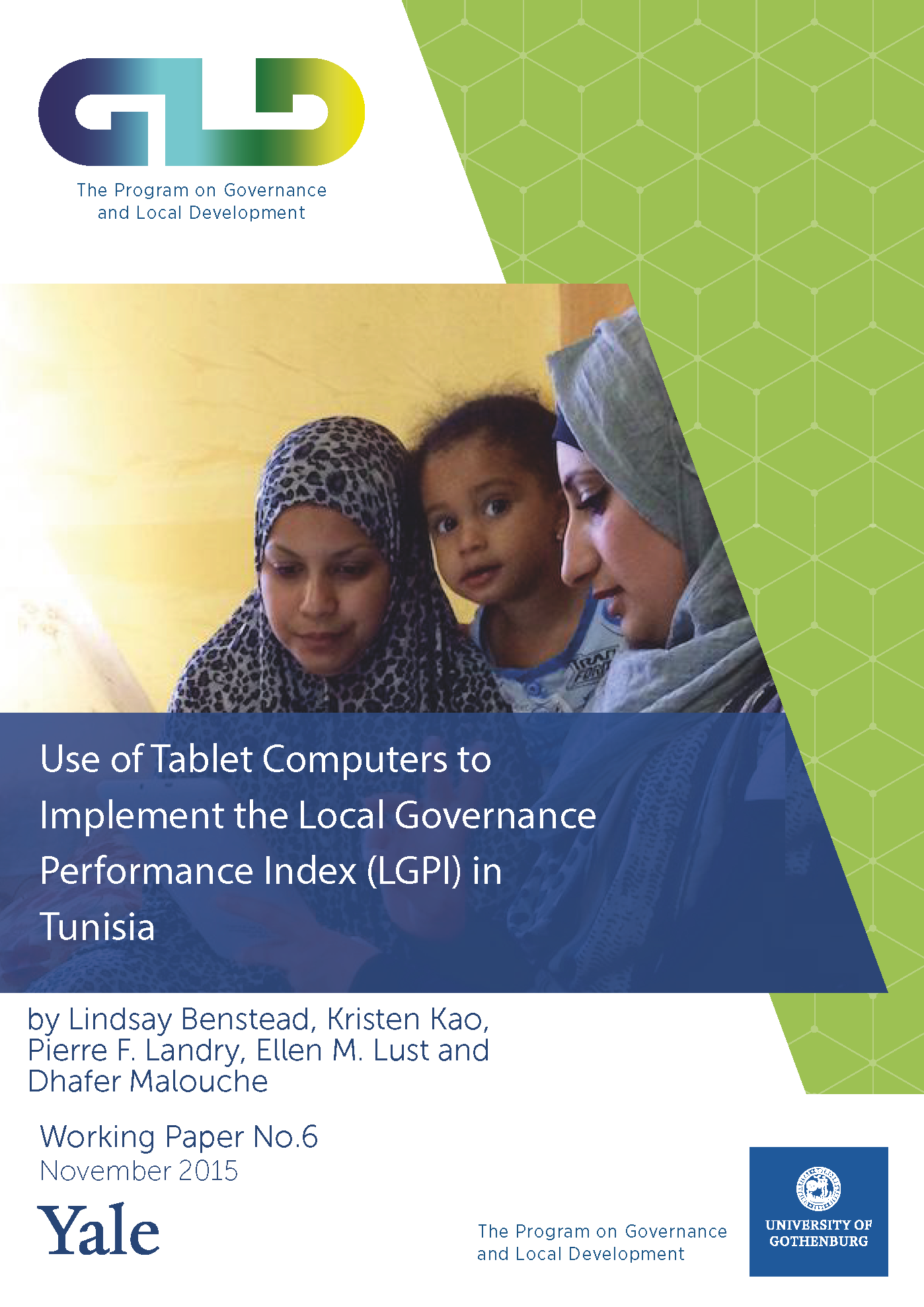No.6 Use of Tablet Computers to Implement the Local Governance Performance Index (LGPI) in Tunisia
Lindsay Benstead, Kristen Kao, Pierre F. Landry, Ellen Lust and Dhafer Malouche
Abstract
This paper shares the advantages and challenges of using tablets to implement a complex survey on local governance and offers practical advice stemming from lessons learned during the successful implementation of the survey. It focuses on the experience of the Program on Governance and Local Development Using tablets offered several advantages. They allow for implementation of a long, complicated questionnaire and to implement survey experiments in which randomized subpopulations received different “treatments” (namely, versions of questions, framing questions, and list experiments). Tablets also make it possible for us to verify the location of respondents according to our sampling design. This geographical information is important at the data analysis stage by making it possible to account for clustering and “neighborhood effects” within small localities. Additionally, tablets allowed us to time the length of each interview precisely, which turned out to be important for catching data collection errors in the field. Using the tablets entailed some particular challenges as well. These included start-up costs of learning new software, programming the questionnaire, and the need to do pretesting and piloting to resolve coding bugs that can potentially introduce errors into the study. There are also important logistical considerations, including the availability of electricity and Internet connectivity. Finally, although tablets remove some sources of survey error, they may introduce others. It is important to recognize these potential problems in order to guard against them.
A revised version of this paper has recently been published in Survey Practice and is available to download here.
